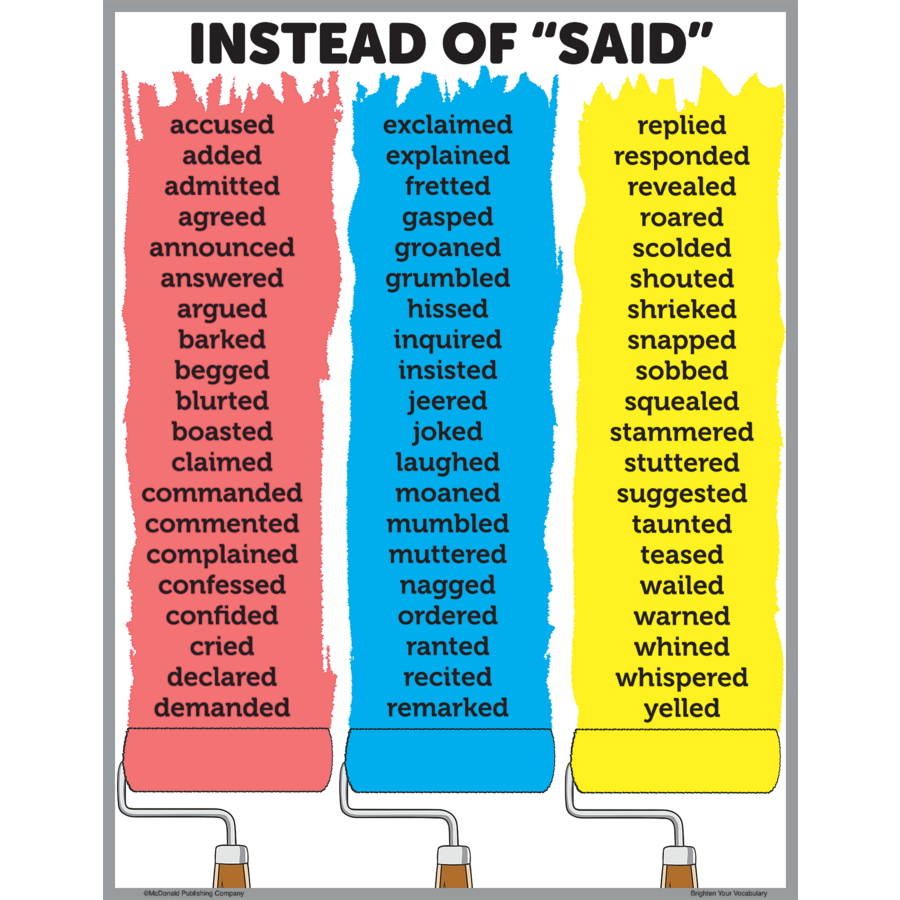

Give children real life reasons to communicateĭelivering presentations, writing real letters, talking to visitors and performing to parents, all allow children to learn the importance of communication in everyday life. Above all, allow time for children to master new vocabulary so it becomes part of their working memory. Provide the children with a word bank to use during a discussion, observing how they use it. Plan a small selection of words that you want to introduce every term, dropping them into your whiteboard writing and teacher talk – even on playground duty.
VOCABULARY TEACHER RESOURCES HOW TO
Plan, model and allow time for masteryĬhildren are masters of imitation, so always model how to use appropriate vocabulary for different purposes – not just in English lessons.

Play word games, such as Taboo and Pictionary, to learn statutory and topic word lists. Have fun exploring portmanteau, double meanings and tongue twisters. Trial, error, praise and a dash of humour are key here, as children can easily be put off using new vocabulary. Discuss how synonyms can have different shades of meaning, depending on their context. Be brave, experiment, and have fun with wordsĬhallenge children to find out the meanings of unfamiliar words, and teach them how to use glossaries, dictionaries and thesauri (we like the Oxford English range). It takes around 12 exposures to a new word to develop a deep understanding. It’s better to keep the word lists or word walls short and give the children time to master their new vocabulary before adding more. Display, and continually refer to, engaging and interactive word walls and vocabulary resources. Discuss pronunciation, spelling, meaning and origins (if appropriate), and provide plenty of opportunities for children to use the words. Share a wide range of texts and don’t worry if they are slightly beyond your children’s reading age – it’s a great way to introduce new words. Expose children to rich and challenging language Here are my five tips for building vocabulary in the classroom. It states that children should acquire and confidently use new and varied vocabulary, actively build upon their knowledge, make links between known and new vocabulary, and understand shades of meaning in similar words. The national curriculum does address this.

Unfortunately, there is growing evidence that the language and vocabulary of school starters has been declining over the past five years. It’s also, as we know, essential for writing. Research has consistently shown that having a varied and rich vocabulary vastly improves a child’s development in reading and comprehension skills.

Designed for KS3 students but easily adaptable for GCSE English Language students, the pack includes resources on both narrative and descriptive writing.In today’s 24/7 world, children need to be competent communicators. Or check out some Citizenship GCSE, RE, PSHE + RSE resources at EC ResourcesĬreative writing complete scheme of work pack. Love and Relationships poetry whole scheme package Power and Conflict poetry whole scheme package Power and Conflict poetry comparing poems package
VOCABULARY TEACHER RESOURCES FREE
Includes differentiated activities, source materials, engaging tasks and extensive student and teacher notes.Ĭheck out our English Shop for loads more free and inexpensive KS3, KS4, KS5, Literacy and whole school resources.ĪQA English Language Paper 1 and Paper 2 Knowledge OrganisersĪQA English Language Paper 1 Section A packageĪQA English Language Paper 1 Sections A and B packageĪQA English Language Paper 2 Question 5 packageĪQA English Language Paper 1 Question 5 packageĪQA English Language Paper 2 Section A packageĪQA English Language and English Literature revision package Includes a model example, detailed teacher and student notes, engaging tasks, differentiated materials, and a huge range of adjectives for students to adapt and adopt into their own creative writing.Ī useful lesson for both KS3 and GCSE English Literature and English Language students. Creative writing vocabulary lesson that explores how to use vocabulary to introduce new characters.


 0 kommentar(er)
0 kommentar(er)
